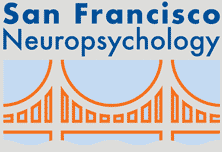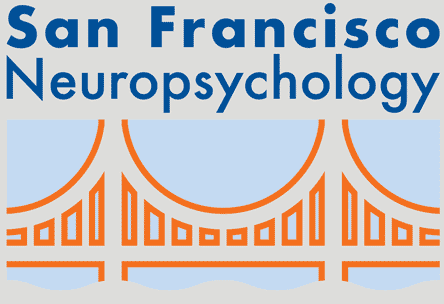ADHD stands for Attention Deficit / Hyperactivity Disorder.
A Neuropsychological Evaluation can be used to aid in the diagnosis and treatment of ADHD.
- Differential diagnosis. The exam provides an evaluation of the full range of conditions that may either co-occur with ADHD, moderate the severity ADHD, or mimic ADHD. The conditions are measured in order to understand what role they play in affecting the individual’s condition. Sometimes another condition that mimics ADHD is identified, which is important to select appropriate treatment. Other times, another condition makes a mild ADHD much worse, and must be treated first in order to make the ADHD much more manageable.
- Accurate diagnosis. A neuropsychological exam uses a variety of ways to identify and measure ADHD, rather than relying on parent and teacher ratings alone, which do not rule out conditions that mimic ADHD.
- Recommendations tailored to you. The neuropsychological evaluation characterizes an individuals strengths and challenges so that an individualized treatment plan may be developed to leverage strengths to compensate for weaknesses. Treatment recommendations are tailored to an individual’s particular profile of strengths and challenges.
What is ADHD?
There are three types of Attention Deficit / Hyperactivity Disorder.
The Predominantly Inattentive Presentation includes difficulties paying attention for extended periods of time, following instructions, and organizing tasks and assignments. Individuals with this presentation often have difficulty in school or work because of forgetfulness and what look like careless mistakes. There is less hyperactivity or fidgetiness in the Inattentive Presentation.
The Predominantly Hyperactive/Impulsive Presentation is seen in people who are fidgety, have trouble playing or working quietly, who are sometimes described as overly talkative and “being driven by a motor.” Children with this presentation often have difficulty staying in their seats at school. Adults with this presentation may have problems staying on topic in conversation.
The Combined Presentation includes both inattentiveness and hyperactivity/impulsivity.
Other conditions that may explain these symptoms must also be ruled out. Sometimes people with depression, anxiety, or Post Traumatic Stress Disorder can appear to others to have ADHD. If problems with attention have another explanation, it is important to identify the cause in order to select the best treatment. Other causes of problems with attention include Traumatic Brain Injury, stroke, epilepsy, etc. A careful history is important to find the most likely cause of problems with attention.
Once a diagnosis of ADHD is made, an individualized treatment plan can be designed to help the individual with ADHD function better at school, home, and/or work. Treatment for ADHD is “multi-modal,” meaning that it is best accomplished with a whole team approach. This may include medication, individual psychotherapy, group therapy, family therapy, school accommodations, and possibly other interventions as well. Deciding which interventions are best for any individual depends upon their unique situation and the strengths and challenges identified from the neuropsychological evaluation.
Recommendations: In addition to medication (e.g., Ritalin, Strattera, Concerta), there are therapies that help people with ADHD and their families. Adults can better manage their symptoms with Cognitive Behavioral Therapy targeted at adults with ADHD. Parents of children with ADHD can learn strategies to improve their child’s functioning in school and at home with Parent Management Training. Depending on the severity of the impact of ADHD, accommodations at school may be appropriate (e.g. increased time on tests or for completing projects, preferential seating, special tutoring, etc.). Good sleep is always important for brain function. We will tailor the recommendations to your individualized needs.
Resources:
Support groups and additional information may be found at Children and Adults with ADD
Sleep Experts Answer Your Questions On Teens And Shuteye http://m.npr.org/news/front/136435718

